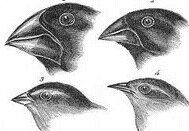Wednesday, September 06, 2006
Taking a Short Beak
 The Discovery Institute is kvetching about Wikipedia's refusal to permit itself to be used as another arm of the ID propaganda machine. The occasion the DI takes to put Wikipedia "on notice" is an email they got from one Paul R. Stone, who is not only positively adamant that his name be linked to his amusingly obvious ignorance of what he criticizes, but actually delights in pointing out that he is "an engineer ... not a biologist," thus providing yet another data point in favor of the Salem Hypothesis.
The Discovery Institute is kvetching about Wikipedia's refusal to permit itself to be used as another arm of the ID propaganda machine. The occasion the DI takes to put Wikipedia "on notice" is an email they got from one Paul R. Stone, who is not only positively adamant that his name be linked to his amusingly obvious ignorance of what he criticizes, but actually delights in pointing out that he is "an engineer ... not a biologist," thus providing yet another data point in favor of the Salem Hypothesis. After prefacing his proposal by saying "[i]f evolutionists truly believe in "survival of the fittest," Mr. Stone continues:
May I suggest that you would be better served to use a debate format for subjects of controversy.
Let each side present their case, sticking to the facts, and afford both sides the opportunity to engage in rebuttal and to rebut the rebuttal. Rulings from a judge ... will not impress any who don't already agree with it.
If evolution is indeed the fittest, it will survive such a test.
Committing a species of what is commonly called the "naturalistic fallacy," Mr. Stone fantasizes that what "ought" to be is what actually succeeds. All of the above finch beaks are "fittest" within certain environments during certain times. But which one is "true" or "good"?
I wonder if Mr. Stone has ever contemplated what his proposal, if a correct test of the truth of a proposition, would mean about Christianity? After some 2000 years of vigorous "debate," not a few times at sword point, the majority of people in the world still don't believe in it.



